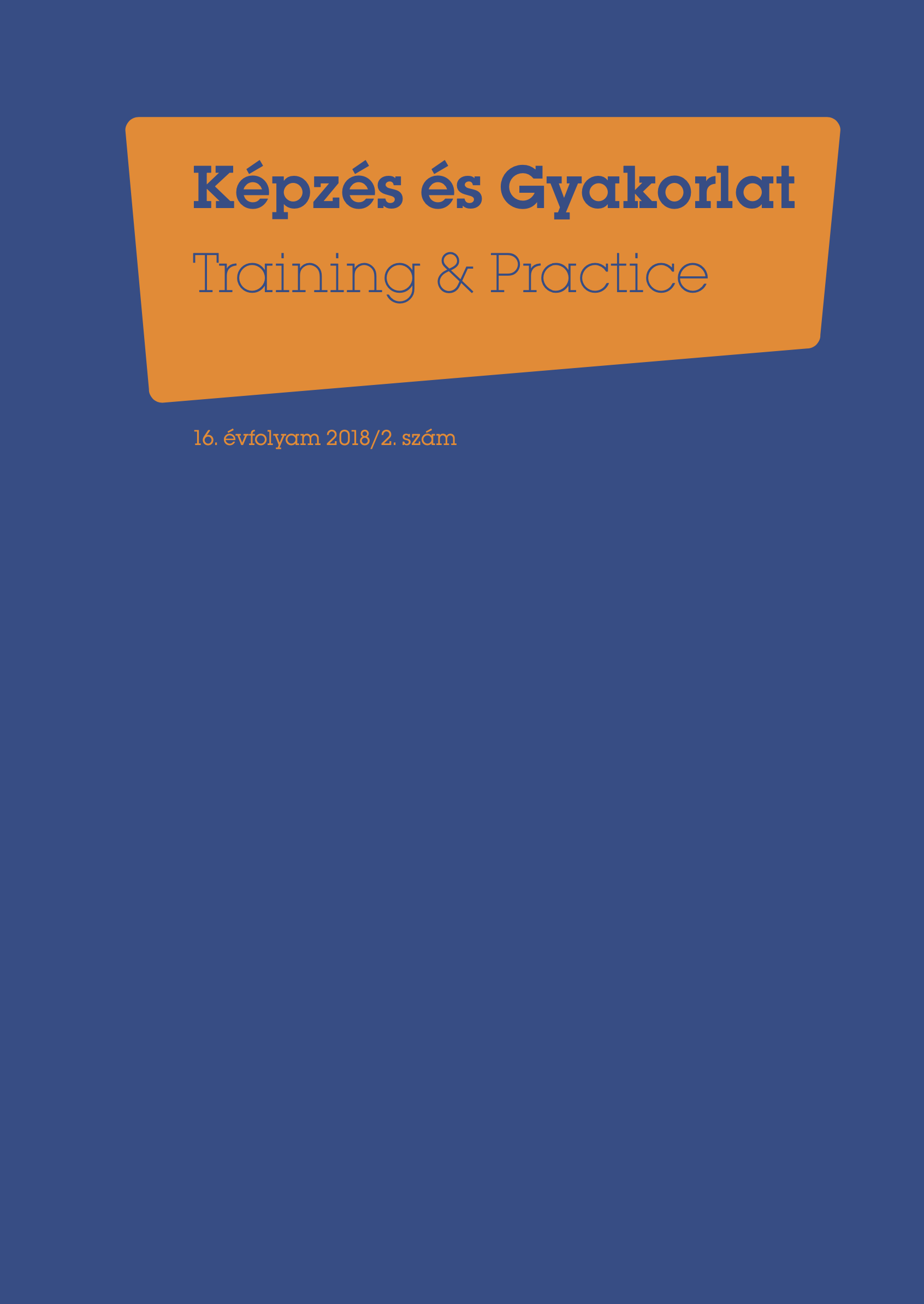Influencing factors affecting environmental attitudes
DOI:
https://doi.org/10.17165/TP.2018.2.8Abstract
In the past decade, environmental education received ever increasing attention in the Hungarian educational system. In addition to the diverse educational methods used in shaping the learners’ appropriate environmental attitude, the Eco-school Network /Ökoiskola/ also plays an important role. The arsenal of methods used in and out of class that can be used to raise environmental awareness is continuously growing. The question is whether the various conditions do, in fact, contribute to the development of the students’ positive environmental attidutudes. In our investigation we examined influencing factors (school maintainer, year), which, according to our hypothesis, help the shaping of environmental attitude. Our results suggest that the type of the school is not a decisive factor in shaping the environmental attitude of the students examined. There is no change for the better in students’ environmental attitude in higher grades (clasess 9 to 12), either.
References
Andor, M. (2001). Társadalmi egyenlőtlenség és az iskola. Educatio, 10. évf. 1. sz. pp. 15–30.
Arató, F. és Varga, A. (2004). Együttműködés az együttnevelésért. Educatio, 13. évf. 3. sz. pp. 503–508.
Barta, Sz. (2009). A 2006-os kompetenciamérés tizedik évfolyamos adatainak elemzése. Educatio, 18. évf. 2. sz. pp. 250–256.
Derdák, T. és Varga, A. (2003). A hátrányos helyzet tartósodása. Educatio, 12. évf. 1. sz. pp. 131–135.
Doros, J. (2010). Jászladányi iskolapélda. Kritika, 39. évf. 2. sz. pp. 9–11.
Gulyás, M. (2004). A környezeti nevelés és a személyiségtényezők hatása a környezeti attitűdre. [Szakdolgozat], ELTE PPK, Pszichológia szak, Budapest
Gulyás, M. és Varga, A. (2006). A környezeti attitűdtől a minőségi kritériumokig. In: Varga, A. (Ed.), Tanulás a fenntarthatóságért, (pp. 119–138). Budapest: Országos Közoktatási Intézet.
Hegedűs, R. (2016). Tizedik osztályos tanulók teljesítményének területi különbségei. Iskolakultúra, 26. évf. 12. sz. pp. 16–30. DOI: https://doi.org/10.17543/ISKKULT.2016.12.161
Konyha, R. (2011). „Zöldebb” családokat! – Fiatalok környezeti attitűdje. Új Pedagógiai Szemle, 61. évf. 1–5. sz. pp. 484–498.
Kónya, Gy. (2009). Környezeti nevelés a biológiatanításban. A biológia tanítása – módszertani folyóirat. 17. évf. 3. sz. pp. 9–18.
Kónya, Gy. (2017). A környezeti attitűd összetevőinek összehasonlító vizsgálata. EDU-Szakképzés és környezetpedagógia elektronikus szakfolyóirat. 7. évf. 4. sz. pp. 32–54.
Kónya, Gy. (2018). Környezeti nevelési tartalmak a középiskolai oktatás tankönyveiben és kimeneti szabályozóiban. JATES-Journal of Applied Technical and Educational Sciences. 8. évf. 1. sz. pp. 36–49.
L. Ritók, N. (2012). Az egyházi iskolák és a szegregáció. [online], http://www.tani-tani.info/102_lritok [2017. augusztus 31.]
Lükő, I. (2003). Környezetpedagógia. Budapest: Nemzeti Tankönyvkiadó.
Nahalka, I. (2014). Még egy rangsor! [online], https://tani-tani.info/meg_egy_rangsor [2017. augusztus 31.]
Nemzeti Alaptanterv (2012). A Nemzeti Alaptanterv kiadásáról, bevezetéséről és alkalmazásáról szóló 110/2012. (VI. 4.) Kormányrendelet. Magyar Közlöny, Budapest, 66, pp. 10635–10848.
Széll, K. (2015). Az iskolai eredményesség a hátrányos helyzet tükrében. Educatio, 24. évf. 1. sz. pp. 140–147.
Thiengkamol, N. (2011). Development of Model of Enviromental Education and Inspiration of Public Consciousness Influencing to Global Warming Alleviation. European Journal of Social Sciences, 25. évf. 4. sz. pp. 506–514.
Varga, A. (2006). Diákok környezeti attitűdjei. Iskolakultúra. 16. évf. 9. sz. pp. 58–63.
Downloads
Published
Issue
Section
License
Copyright (c) 2018 Kónya György

This work is licensed under a Creative Commons Attribution-NonCommercial-NoDerivatives 4.0 International License.












